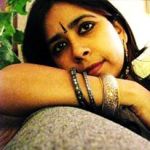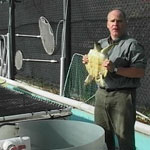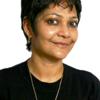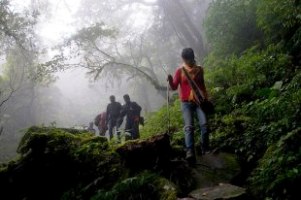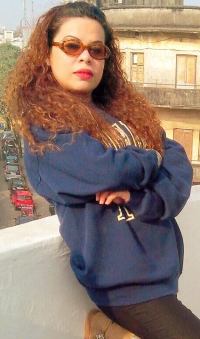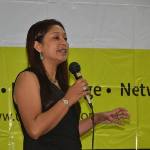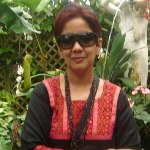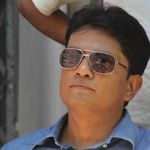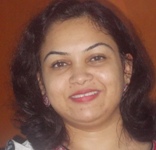What happens when you do an exercise as strange as changing the core theme of a well-known canonical poem such as Leda and the Swan and produce your own version? Armed with new pieces where either Leda eats a swan cooked Szechuan style and burps in glory, or they both become BFFs forever, or the swan painted on a gallery wall sends shivers through a modern-day abused Leda, creative writing students are no longer just following the established norm. They’re spelling out their own preferences. And not just common writing exercises as the one mentioned above and canonical work, it is also other contemporary texts that the practitioners of creative writing are examining in real earnest.
For me, creative writing happens to be a strange animal. There’s no defined form or limbs it displays and yet, like the proverbial, mythical golden deer, it entices scholar, teachers, and young writing aspirants to follow its trails. Everyone knows that enrolling in a creative writing course will not make one a writer. And there are other serious charges against the practice of creative writing as seen in the universities that hardly consider any flexibility. Besides, writing is creative any way. So what use is such a redundant expression? And who learns to write in classrooms? None of our famous poets and writers did.
Notwithstanding the clash of idea around the nomenclature ‘creative writing’ and its dubitable emancipatory powers, the English and Foreign Languages University (EFLU) in Hyderabad recently went ahead to organize a month-long workshop for students from BA, MA as well as doctoral levels. It was a good mix, an energetic bunch. One that was ready to put aside old syllabi and dead old writers, not to reject them, but to return to them at will.
“There is no greater agony than bearing an untold story inside you,” said Maya Angelou.
What most of us did as children many years back is what most of us in love with writing do even now. The untold story within struggles to free itself. In our young days in Guwahati, Assam, we used to reside in a neighborhood called Rehabari, a quiet kind of area with little lanes and a mix of government and private employees in their rented or modestly built homes. During the long summer holidays, we’d have to be busy with activities while the parents grappled with our unending bursts of energy. “They need to be creative, not just given tasks or homework,” someone had said. Creative – that’s the second nuanced English word I had learnt after the adverb “actually”, liberally used by family and neighbors. So liberally that I used to think these words were part of the vernacular.
I remember we had started a writing group of sorts. I even produced a handwritten and illustrated “magazine” complete with stories, comic strips and poetry. We got busy with pastels for coloring portions of the esteemed literary product and learning to use stencils for dramatic script effects. And we wrote. Bizarre rhymes, lofty quatrains, ghost stories and ‘personal’ stories! And we slowly understood what creative might mean. To be creative became a compulsion. But to have become a writer was a persuasion, which I understood much later.
It is the ‘postscript’ moment of a writing life that suddenly reveals that there’s this liberator called creative writing. But is it really the liberator? Can it, the way it is packaged by the universities and market demands, make writing flow like Ganga from the mountain-bound tribal god Shiva’s unkempt hairdo?
Debates are many and volatile regarding this. But I can vouch that the fun that the students have in a creative writing class or workshop is like none other anywhere else.
The Bengali saying likhibe poribe moribe dukkhe/motshyo maribe khaibe shukhe is often ascribed to the whole rigor of education. Loosely, it translates as: why get depressed reading and writing/just go fishing instead and be happy. What eludes education honchos almost anywhere in the world is that in a creative writing course, there exists that bonhomie akin to ‘fishing’. At least in my own experience this is true. But detractors are known to have said that being critiqued in workshops is as horrible as being thrown to the sharks. But we can still go fishing with the sharks, you see!
In my class at EFLU, this feeling seemed to reach its peak when the students did an exercise where everyone wrote a few lines sans the alphabet ‘c’. The result was exciting and beautiful – both in verse and prose. Avoiding being trapped by ‘c’ appeared better than playing a video game. And curiously, phonetically something still stayed in everyone’s head, and the class just ended up writing one too many compositions that involved ‘sea’, ‘see’, and ‘she’! One may say we still had a good time. “We see how much fun she has in the sea”, to quote a tentative line by a participant.
Together we learnt a little rhetoric and even littler prosody, all the while mostly reading and discussing the craft of poetry and prose as it transpired to us in the class. If Leda and the Swan evoked a variety of responses, William Carlos Williams' eternal red wheelbarrow, Arun Kolkatkar’s Yeshwant Rao and Jamaica Kincaid’s Girl had the class debate and discuss issues such as gender, patriarchy, religion, and poetry’s role as a change agent. And to my delight, some element from each of these eminent readings crept into individual writings.
What all can a charged group of youngsters ranging from age 19 to 29 write in just 10 or 12 sittings? Daunting task, this. But I’m happy to say, we reaped a rich harvest of allegories, rhyming ditties, stories of death and sanguine humor, biographical account, Beckettian monologue, stanzas that hark to spoken poetry style, and so much else. Cyclones, betrayal, para-normal detectives, runaway militant reminiscing his lost love – these were just a few topics among many others that the workshop took up. Needless to say, these were chosen entirely by the students themselves. Revision, that dreaded companion beast of creative writing, enjoyed an honorable position. John Irving, who said, “Half my life is an act of revision”,would’ve been proud. No one was averse to rewriting after patiently hearing out critique from all quarters. And all this minus any drama and tears. That’s called success.
But success lay in other things too, especially in the finale of the program. Most of the class read their original work at a public event at the end of the month-long workshop. The untold stories poured forth with grace and gumption. In an almost full house, between hot milk-tea, spicy samosas and cookies, more conversation poured into the evening – wishes, dreams and goals That, I’d say, when the creative was writing itself.
After all, wasn’t it Emily Dickinson who wrote the following?
A word is dead
When it is said,
Some say.
I say it just begins
to live that day.

